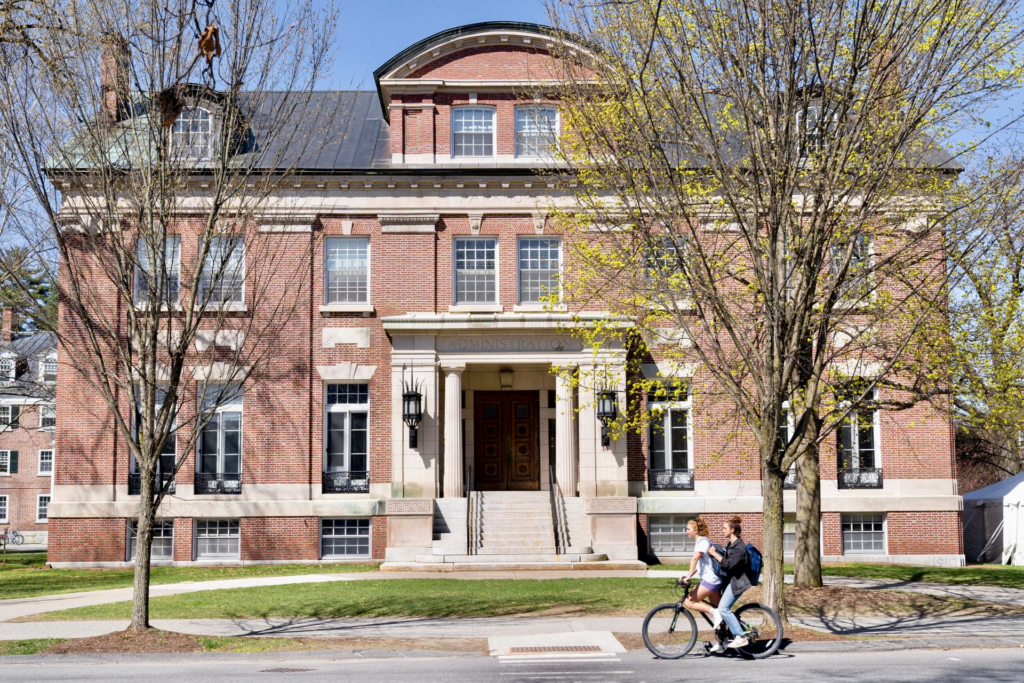
In the wake of the terrorist group Hamas’ attack on Israel on October 7, a number of alumni have rightly launched a torrent of criticism against the administrations of their alma maters—prominent universities that include a selection of Ivy League schools, most notably Harvard, Penn, and Columbia. Such criticism of administrations has focused most prominently on some combination of three points: (1) failure to strongly condemn Hamas’ atrocities; (2) failure to strongly condemn the anti-Semitism that has since ensued on campuses, in word and deed alike, among both students and faculty; and (3) failure to protect Jewish students from threats, harassment, and even assault from anti-Semitic elements.
Many of the alumni in question are major donors, long involved in the fundraising affairs of their respective academic institutions, who are at present withdrawing or threatening to withdraw their financial support. In so doing, these alumni and other like-minded mega donors are taking a noble stand and one which we have reason to hope will be heeded. Indeed, these individuals are seeking to instigate change in that foggiest corner of academia, its bureaucracy, by operating within a preexisting system—or, one might say, by threatening to break out of it. They are in effect warning that they are prepared to destroy the mammoth financial infrastructure on which elite universities have long subsisted. One hopes that so vast a disruption, and even the potential of it, will impel universities to take corrective action: opposing both Hamas’ terrorism as well as acts of anti-Semitism rather closer to home, from a position of avowed moral clarity.
Harvard has to date lost the support of an array of longtime, prodigious benefactors. At the head of this list are the billionaire Idan Ofer and his wife, who resigned from posts at the Harvard Kennedy School in protest over the delayed, tepid response of the University’s president to a student letter that blamed Israel for Hamas’ brutality. The billionaire Leslie Wexner followed suit: After having donated $42 million to Harvard over the years, his foundation announced that it was severing all ties with Harvard in light of the University having “tiptoe[d]” over Hamas’ attacks. The Harvard-weaned billionaire Bill Ackman likewise announced that he was halting donations. He submitted that the actions of Harvard’s administration had only intensified anti-Semitism on campus, and he said that Jewish students with whom he had spoken reported having been “bullied, physically intimidated, [and] spat on.”
Prominent Penn alumni have reacted along similar lines. Billionaire Marc Rowan, who chairs Wharton’s Board of Advisors, has donated in excess of $50 million to the University through the years. But now he has declared that he will not contribute further unless both the University’s president and the Chair of its Board of Trustees step down. He cites weak statements and actions from the administration in response both to Hamas’ terrorism and to instances of intense anti-Semitism on campus, which he contrasts with strong, politically minded statements issued in the recent past. The billionaire Ronald Lauder has likewise declared that Penn’s lack of action to combat anti-Semitism is “forcing [him] to reexamine” his longstanding financial support. Clifford Asness, another Penn-produced billionaire, has also forcefully written that he plans to stop donating.
As for Columbia, the billionaire Leon Cooperman has staunchly criticized both a student walkout and a professor who called Hamas’ offensive a “stunning victory.” Cooperman has argued that the University should fire the professor in question, adding that, unless he soon sees a broader change, he may suspend his donations. Moreover, billionaire Henry Swieca has resigned in protest from the board of Columbia Business School, decrying the “moral cowardice” of the University’s administration. He has opined: “Any other minority group on campus would never have to face anything close to this level of intimidation and hatred [that] Jewish and pro-Israel students experience.”
We at The Review have recently praised both Dartmouth’s response to Hamas’ attack and the thoughtful and clear stance that President Beilock’s administration has adopted and communicated in the weeks since October 7. Nonetheless, just one week ago, a prominent Jewish alumnus relayed to this paper that—while subscribing to our positive perspective of Dartmouth overall on the matter, certainly in comparison to other Ivies—he and a broader group of alumni are keeping a watchful eye on the Administration. They intend to monitor the Administration’s response to developments in the Hamas-Israel conflict and to prospective incidents on campus as they unfold. So shall we.
Dartmouth prides itself considerably on the attachment and involvement of its alumni, and indeed Forbes has routinely ranked Dartmouth alumni the “happiest, most successful” in the nation. To be sure, the exceptional generosity of alumni—the College attained a staggering 60% rate of alumni giving last year—funds significant infrastructure, programs, professorships, scholarships, and more. In all, I believe that the clear value which alumni ascribe to the College ought to be consciously reciprocated. Surely Dartmouth of all the Ivies ought to heed the moral sentiments of its alumni. So far it has done well, and I hope the trend may continue. We are, after all, faced with the stuff of moral clarity.

Be the first to comment on "Editorial: On Alumni Donations"